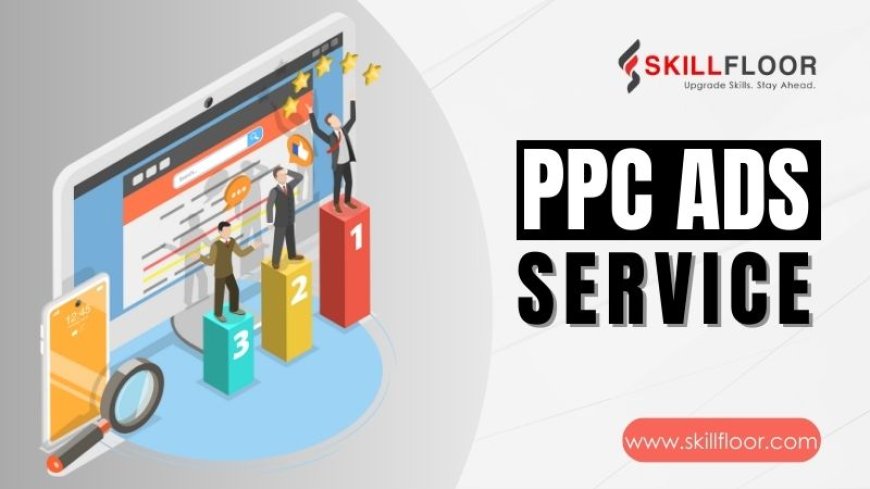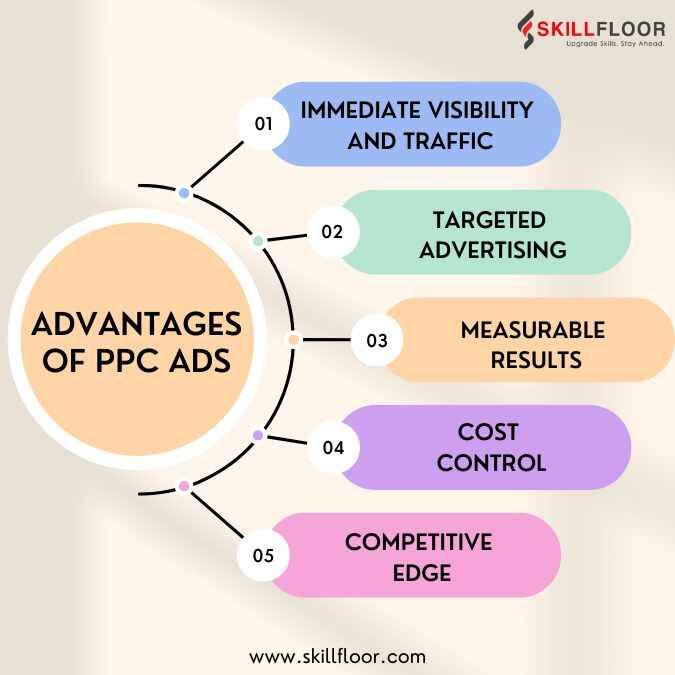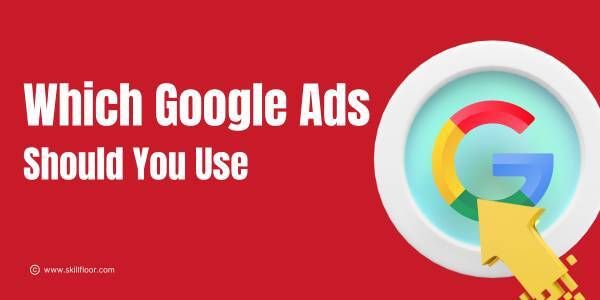The Role of PPC Ads Service in Digital Marketing
Learn how PPC ads boost digital marketing strategies by driving targeted traffic and enhancing business growth

PPC Ads Service serves as a practical tool for businesses looking to connect with their audience. PPC, or Pay-Per-Click advertising, allows companies to pay a fee each time someone clicks on their ad. This approach helps drive targeted traffic to websites and can be customized to support various marketing objectives, like attracting new customers, promoting products, or enhancing brand visibility. By using a PPC Ads Service, businesses can set specific criteria for their ads, such as targeting by location or demographics, ensuring they reach the right people at the right time.
Another key benefit of a PPC Ads Service is its ability to offer clear, trackable results. Marketers can monitor how their ads perform in real time, making it easier to tweak and improve campaigns for better outcomes. This flexibility and transparency are helpful in the fast-paced world of digital marketing, where understanding what works can lead to more successful strategies. Additionally, a PPC Ads Service works well alongside other marketing methods like SEO and content marketing, providing immediate visibility while supporting long-term growth. This combination allows businesses to build a well-rounded and effective online presence.
Key Components of PPC Ads
-
Keywords: The backbone of PPC ads, keywords determine when and where your ads appear. Advertisers select keywords that are relevant to their products or services, and these keywords trigger their ads when users search for them.
-
Ad Copy: The text or visual content of the ad is crucial. Effective ad copy captures the user’s attention and prompts them to click through to the website. The copy must be relevant to the search query and persuasive enough to drive action.
-
Landing Pages: Once a user clicks on a PPC ad, they are directed to a landing page. This page should be directly related to the ad’s content and optimized to convert the visitor into a customer or lead.
-
Bid Management: PPC operates on an auction-based system where advertisers bid on keywords. The bid amount, along with the ad's relevance, determines the ad's placement. Effective bid management involves adjusting bids to maximize ROI while staying within budget.
-
Ad Extensions: These are additional pieces of information that can be added to an ad, such as location, phone number, or additional links to the website. Ad extensions make the ad more informative and can improve click-through rates.
Advantages of PPC Ads
-
Immediate Visibility and Traffic: One of the most significant advantages of PPC is the speed at which it can deliver results. Unlike SEO, which can take months to show impact, PPC ads can generate traffic as soon as the campaign is live.
-
Targeted Advertising: PPC allows businesses to target their ads to specific audiences based on factors such as location, demographics, and device type. This precision targeting helps ensure that the ads reach the most relevant potential customers.
-
Measurable Results: With PPC, every aspect of your campaign is measurable. From clicks and impressions to conversions and cost per acquisition, PPC provides a wealth of data that can be analyzed to understand campaign performance and make informed adjustments.
-
Cost Control: PPC offers flexible budget options. Advertisers can set a maximum daily or monthly budget, ensuring they never spend more than they are comfortable with. This makes PPC accessible to businesses of all sizes.
-
Competitive Edge: For businesses in competitive markets, PPC can provide a crucial advantage by allowing them to appear prominently in search results, even if their organic rankings are not strong.

Challenges of PPC Advertising
Despite its many advantages, PPC advertising is not without challenges:
-
Cost and Competition: As more businesses recognize the value of PPC, the competition for popular keywords increases, driving up costs. Small businesses may find it difficult to compete with larger companies with more substantial budgets.
-
Click Fraud: Click fraud, where competitors or malicious users generate fake clicks to deplete your ad budget, can be a significant issue. Most PPC platforms have measures to combat this, but it remains a concern for many advertisers.
-
Continuous Management Required: PPC is not a set-it-and-forget-it strategy. Successful campaigns require ongoing monitoring, analysis, and adjustments to stay effective and achieve the desired ROI.
-
Learning Curve: There is a learning curve associated with mastering PPC platforms. Understanding how to set up and optimize campaigns effectively can take time and expertise.
Best Practices for Effective PPC Campaigns
To maximize the benefits of PPC advertising, consider the following best practices:
-
Conduct Thorough Keyword Research: Use tools to find the most relevant and cost-effective keywords for your campaigns. Consider long-tail keywords, which are often less competitive and more targeted.
-
Craft Compelling Ad Copy: Your ad copy should be clear, concise, and aligned with user intent. Highlight the unique value proposition and include a strong call to action.
-
Optimize Landing Pages: Ensure that landing pages are directly related to the ad content and optimized for conversions. This includes having a clear and relevant headline, a concise and persuasive message, and a simple call to action.
-
Utilize Ad Extensions: Take advantage of ad extensions to provide additional information and improve the visibility and click-through rate of your ads.
-
Monitor and Adjust: Regularly review campaign performance data and make necessary adjustments to bids, keywords, and ad copy. A/B testing can help identify the most effective strategies.
-
Set a Realistic Budget: Start with a budget that you are comfortable with and gradually increase it as you become more confident in your campaign’s performance and ROI.
How PPC Ads Fit into a Digital Marketing Strategy
PPC should be viewed as a complementary component of a broader digital marketing strategy rather than a standalone solution. Here’s how it fits into the bigger picture:
-
SEO and PPC Synergy: SEO and PPC are often seen as separate entities, but they can work together effectively. While SEO focuses on organic growth and sustainability, PPC provides quick wins and fills gaps where organic reach may be limited. Additionally, PPC campaigns can provide insights into keyword performance that can be used to inform SEO strategies.
-
Content Marketing and PPC: Combining content marketing with PPC can drive more traffic to high-quality content. Promoting content through PPC can increase visibility, attract new audiences, and generate leads, which can be nurtured through other marketing channels.
-
Brand Awareness: PPC is an excellent tool for building brand awareness. Even if users don’t click on the ads, repeated exposure to the brand name and messaging can increase recognition and recall.
-
Remarketing: PPC platforms offer remarketing options that allow advertisers to target users who have previously visited their websites. This helps in keeping the brand top-of-mind and encourages return visits, increasing the chances of conversion.
-
Campaign Testing and Flexibility: PPC campaigns can be adjusted in real time based on performance data. This flexibility allows for continuous testing of different ad copies, landing pages, and keywords to find the most effective combinations.
PPC advertising plays a pivotal role in digital marketing by providing businesses with a powerful tool to reach their target audience quickly and efficiently. Its ability to deliver immediate results, offer precise targeting, and provide measurable insights makes it an indispensable part of a well-rounded digital marketing strategy. While it comes with challenges such as cost and management requirements, following best practices can help businesses maximize their ROI and achieve their marketing goals. In the dynamic world of digital marketing, PPC remains a versatile and effective approach for driving traffic, building brand awareness, and ultimately, generating leads and sales.































































